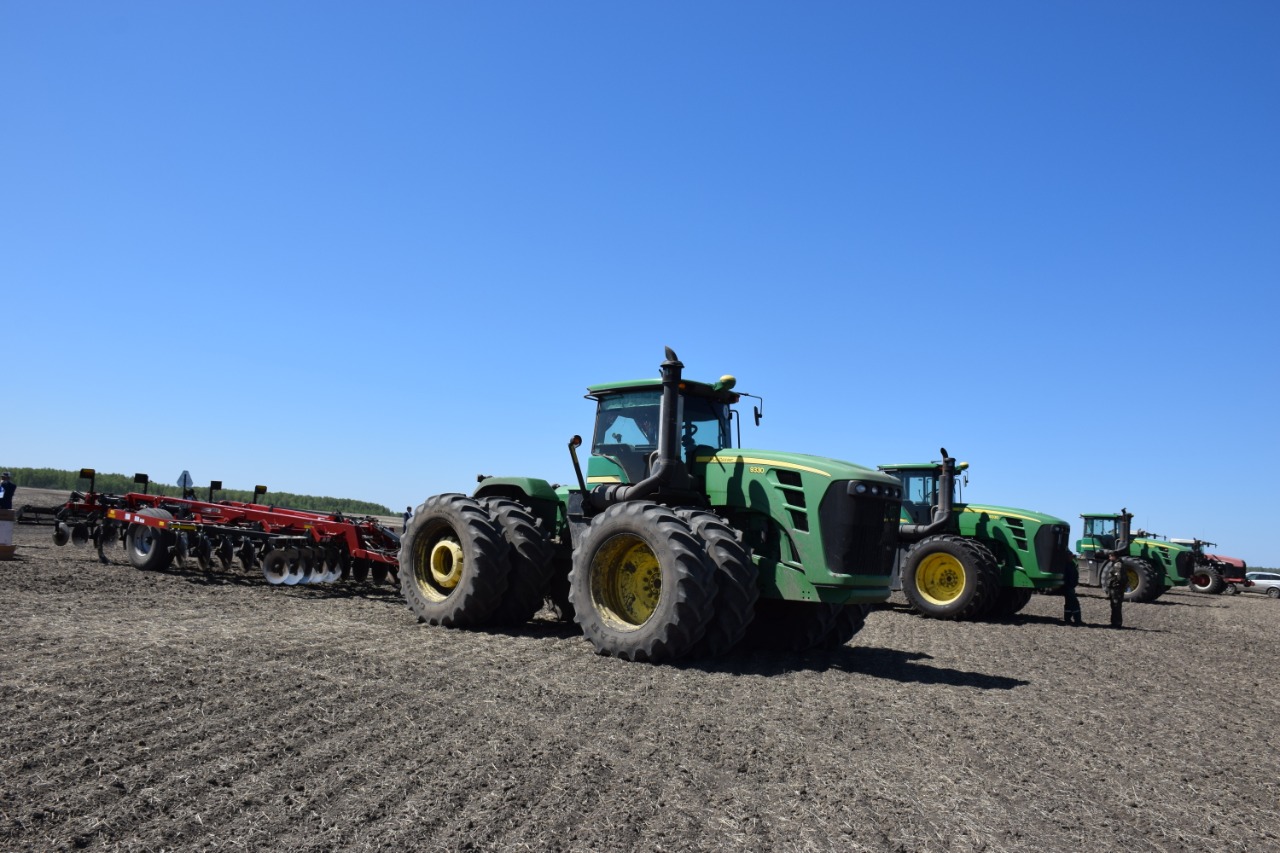Kazakhstan will lift agricultural export restrictions and quotas starting June 1, said Kazakh Agriculture Minister Saparkhan Omarov.

Kazakhstan exported 10.8 million tonnes of grain and flour in grain equivalent in 2018-2019 crop year. Photo credit: Kazakh Ministry of Agriculture.
Kazakhstan, the world’s top wheat producer, introduced wheat and flour export quotas in March at 200,000 tonnes and 70,000 tonnes respectively to ensure domestic supply amid the pandemic and banned export of buckwheat, white sugar, potatoes, onions, garlic, seeds, and sunflower oil.
“All regulatory measures, such as prohibitions and quotas are temporary in nature. Lockdown measures introduced due to the coronavirus pandemic are now going to be eased, which means that normal trade will be gradually restored, and we must respond to this as well. Therefore, we plan to remove all previously imposed restrictions on grain and flour, as well as other food products by June 1,” said Omarov.
The country’s food security, the start of spring field works May 15, which is expected to meet the initial deadlines despite the pandemic, and the sufficient amounts of wheat and other food products in the stabilization fund are among the reasons underpinning the move.
Agriculture has been an important economic sector for Kazakhstan accounting for nearly five percent of its gross domestic product and employing nearly 20 percent of the working population.
Omarov also spoke about the government measures to support the industry, part of the effort to revive economic growth by the end of 2020.
Agricultural producers can receive preferential microloans at a six percent rate per annum via KazAgro holding and use financial instruments provided by the country’s Damu Business Development Fund, a solution to the problem of collateral.
Omarov also said that the introduction of agricultural receipts will boost non-bank and trade financing in the industry. The amount of financing is expected to reach 200 billion tenge (US$484 million) annually with a growth potential of up to 70 percent.
Agrarian Credit Corporation, a subsidiary of KazAgro national agriculture holding, provided preferential loans at a five percent rate to 2,405 farmers across Kazakhstan to finance their spring planting and 95 percent of them represent small and medium-sized businesses.
“Among the participants of the Ken Dala program (Big Steppe), 126 agricultural organizations received 100 million tenge (US$242,000) each. On average, 57 million tenge (US$138,000) were provided to 194 farmers. Around 90 percent of those who received state support are small farmers. 2,085 farmers received an average of 6.1 million tenge (US$14,772). At the same time, the smallest loan was 600,000 tenge (US$1,453),” said the ministry’s press service.
As additional support to the spring harvest, Kazakhstan directed 170 billion tenge (US$411 million) to the Economy of Simple things program meant to support domestic production of daily consumed goods. The first tranche amounted to 70 billion (US$169.5 million). The loan term is 12 months.
“In general, 34.4 percent of the total cultivated area was sown. In 2019, the figure was 31.1 percent. It is very likely that the spring sowing will finish as usual, that is normally. We resolved all issues, there is funding available and seeds are plenty,” said Omarov.
To support producers amid the ongoing pandemic that restricted export of goods, KazAgro offered loan deferment as well as the restructuring of loans and agriculture equipment leasing. As of today, the company endorsed 2,231 applications with a deferral amount of 7.9 billion tenge (US$19.1 million).
“Agriculture producers should get in touch with KazAgro subsidiaries to discuss the postponement of loan payments…the maximum term of postponement depends on the size of payments and loan terms. Borrowers are considered on an individual case by case basis,” said Omarov.
The minister said that areas allocated for highly profitable crops, such as oilseeds, fodder and vegetable crops, gourds, will be increased and the ministry will also consider subsidizing oilseed processing in an effort to develop the raw material base, increase the load of processing facilities and increase the export volumes of processed products.
The government is also mulling the introduction of an annual guaranteed purchase of up to 365,000 tonnes of agricultural products to allow the domestic market to produce certain types of socially significant goods.
Omarov said that four types of agriculture products – wheat, barley, sunflower, and buckwheat – will be purchased. Kazakhstan has committed 24.5 billion tenge (US$59.3 million) to make these purchases.
“Today, the rules for forward purchase will be registered. All organizational work was completed and the money was transferred by the food contract corporation. Today or tomorrow, applications will open,” said the minister.
Kazakhstan plans to negotiate terms regarding the inclusion of Kazakh producers in the list of pork exporters with China, he added.
